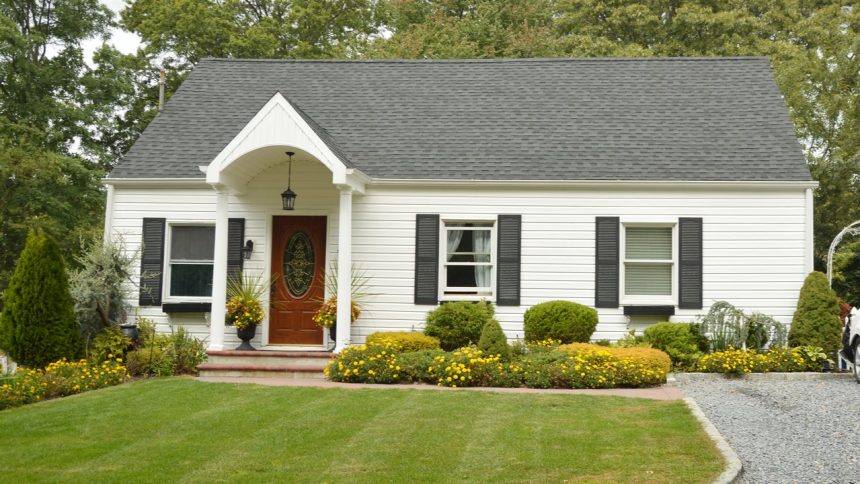Our writers and editors used an in-house natural language generation platform to assist with portions of this article, allowing them to focus on adding information that is uniquely helpful. The article was reviewed, fact-checked and edited by our editorial staff prior to publication.
Key takeaways
- Preforeclosure is a contractual state that occurs when a homeowner is 90 days (or three payments in a row) past due on their mortgage.
- Preforeclosure indicates that the lender is beginning the legal process to foreclose on the home.
- Homeowners in preforeclosure need to act quickly, contacting their lender to explore options to either keep their property or settle their debt.
Missing a few monthly mortgage payments is a predicament that can happen to almost any homeowner. When you stop making payments on your mortgage, your loan servicer may initiate the preforeclosure process, which could ultimately lead to foreclosure. However, with appropriate and prompt action, homeowners facing preforeclosure can avoid losing their home.
What is preforeclosure?
Preforeclosure is the first step in the foreclosure process, and it usually begins when a homeowner is 90 days past due on their mortgage.
When you’ve missed three consecutive mortgage payments, the loan servicer may issue you a notice of default indicating that it is pursuing legal measures — initiating a foreclosure — to collect the unpaid debt. Preforeclosure means you need to act fast to avoid losing your home.
How does the preforeclosure process work?
The preforeclosure process usually kicks in after three missed payments. The homeowner will receive a letter or legal notice from their lender or servicer that their home has been placed into preforeclosure proceedings. This communication, filed with a public court, is called a notice of default. This notice explains that the lender will begin the foreclosure process if the missed payments are not repaid.
During the preforeclosure period, the homeowner and the lender usually explore any possibilities for the borrower to cover the missed mortgage payments. If the two parties can’t agree on how to remit the debt when the court approves the lender’s request to initiate foreclosure proceedings, foreclosure is the likely outcome.
How long is the preforeclosure process?
State laws govern the foreclosure process. So, depending on the state and the lender, preforeclosure can last several months to a couple of years. In some jurisdictions, the lender has to file a lawsuit to repossess the home, meaning that a judge must hear the case, which often translates into a longer and slower process.
What to do if your home is in preforeclosure
If you run into financial trouble and miss your mortgage payments, contact your lender or loan servicer as soon as possible. Ideally, you want to talk with them before you reach preforeclosure.
Remember that the lender’s ultimate goal is to collect the debt, not take the keys to your home. In fact, foreclosing costs lenders a sizable sum in legal fees. Because of this, most are generally willing to work with you if you’re struggling to pay your mortgage.
Bankrate insights
Here are a few options you can explore to avoid foreclosure.
Loan modification during preforeclosure
When in preforeclosure, your lender might offer a repayment plan or a loan modification that adds the outstanding missed payments and any late fees to the end of the mortgage term or spreads them equally over the remaining years of the loan.
If you can provide a good reason for your financial hardship, your lender might also offer forbearance — a pause on your mortgage payments. Just be advised that you’ll need to make up those payments at some point.
Selling a preforeclosure home
You could consider offers to buy the home. Bear in mind that a sale agreement does not necessarily halt the preforeclosure process. But if you do fetch a good price, you may be able to pay the outstanding mortgage, both principal and interest, back with the proceeds, and so avoid the stigma of foreclosure.
If you are underwater on your mortgage — that is, you own more than the home is worth — another option is a short sale, although the lender will have to agree to it. In a short sale, the lender accepts less than what is owed on the home and generally forgives the remaining debt.
Even though the homeowner loses their home, a short sale is not as damaging to their credit history. So it may be a better route — especially since it can be challenging to get a mortgage after foreclosure.
Deed in lieu of foreclosure
With a deed in lieu of foreclosure, you essentially hand your deed — and ownership rights to your house — over to the lender. You’ll need to move out, but this usually releases you from your debt.
Be advised, though, that if your home is worth less than you owe, your lender might require you to make up the difference. Your lender is also not required to accept a deed in lieu of a foreclosure agreement.
How to buy a house in preforeclosure
Preforeclosure homes are typically priced below market value, making them affordable listings, especially for investors and bargain hunters. Moreover, because the homeowner is likely still living in the home, a preforeclosure can sometimes be in much better condition than their foreclosed counterparts.
These purchases can be tricky, though. Due to the framework and timespan of preforeclosure home sales, first-time homebuyers and those looking to move into a new residence quickly should avoid them. Second-home purchasers and real estate investors may be better-suited candidates.
Pros and cons of preforeclosure sales
Pros
- Homes are typically priced below market value, offering a bargain.
- Homes usually are in relatively good condition.
Cons
- A foreclosed home is sold “as is,” so if it needs repairs, you will need to do them.
- It may take longer to close and finalize a foreclosed home purchase.
Preforeclosure FAQ
-
Preforeclosure means that your lender has started taking legal action toward foreclosure because you have missed mortgage payments. But during preforeclosure, you still have time to explore other options, from loan modification to a short sale, to avoid foreclosure.
Foreclosure, on the other hand, means the lender is taking control of a property, to make up what you owe on your mortgage, and the principal and interest payments it will lose going forward.
-
You’ll know when your house is in preforeclosure when you receive a notice of default from your lender. This usually occurs after three missed payments in a row. This notice is a legal document and starts the clock on the preforeclosure process. If you cannot afford to pay what you owe or cannot agree with your lender about a repayment plan, your home will go into foreclosure.
-
If you’re facing the threat of foreclosure, it’s crucial to act fast. Reach out to your lender to discuss options like forbearance, repayment plans or loan modifications — anything to reinstate your loan. You can also consider a short sale or deed in lieu of foreclosure. In extreme cases, filing for bankruptcy might be an option to stop foreclosure.You don’t have to work alone. A HUD housing counselor can offer free counseling and assistance. You can also consult a real estate attorney. But steer clear of companies that charge for foreclosure prevention services: They often cost a lot and accomplish very little.
Read the full article here















